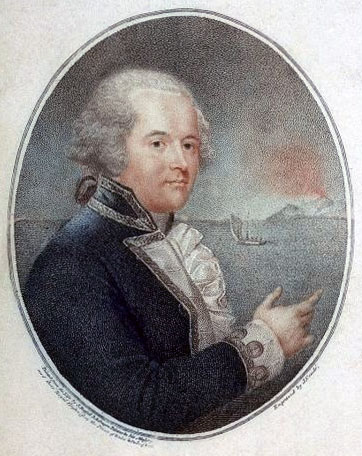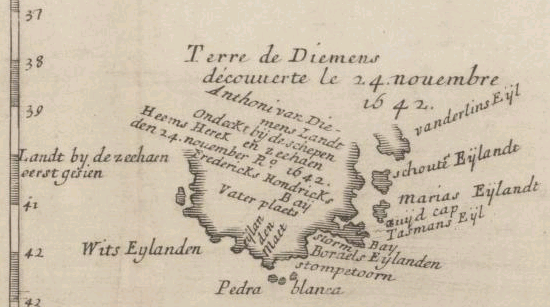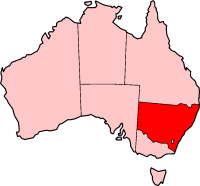|
William Gore (provost Marshal)
William Gore (1765 – 1845) was a provost marshal in the Colony of New South Wales during the early 1800s. During the Rum rebellion he was imprisoned for his support of Governor William Bligh. Gore was released after two years but later in his career was again incarcerated for unpaid debts and for wilfully shooting a soldier. Gore was the first British settler of Artarmon, which is now a suburb in the Lower North Shore of Sydney. The suburb of Gore Hill, which was part of his original Artarmon land grant, is named after him. Early life Gore was born into the reputable Anglo-Irish Gore family of County Sligo in Ireland. He was briefly imprisoned by Irish rebels during the 1798 Irish Rebellion. Provost marshal of New South Wales In 1805 he was appointed to the position of Provost marshal in the colony of New South Wales. He travelled with Captain William Bligh who was to take up the position of Governor of New South Wales. Taken prisoner during the Rum Rebellion Gore was a ... [...More Info...] [...Related Items...] OR: [Wikipedia] [Google] [Baidu] |
Provost Marshal
Provost marshal is a title given to a person in charge of a group of Military Police (MP). The title originated with an older term for MPs, '' provosts'', from the Old French ''prévost'' (Modern French ''prévôt''). While a provost marshal is now usually a senior commissioned officer, they may be a person of any rank who commands any number of MPs; historically, the title was sometimes applied to civilian officials, especially under conditions of martial law, or when a military force had day-to-day responsibility for some or all aspects of civilian law enforcement (such as some British colonies). A provost marshal may also oversee security services, imprisonment, fire/emergency services and ambulances. British Armed Forces In the British Armed Forces, the provost marshal is the head of the military police of each service, with the senior military police officers at lower levels being titled deputy or assistant provost marshals. In many cases the provost marshal is in charge ... [...More Info...] [...Related Items...] OR: [Wikipedia] [Google] [Baidu] |
Rum Rebellion
The Rum Rebellion of 1808 was a ''coup d'état'' in the then-British penal colony of New South Wales, staged by the New South Wales Corps in order to depose Governor William Bligh. Australia's first and only military coup, the name derives from the illicit trade of the alcoholic drink rum in early Sydney, over which the 'Rum Corps', as the New South Wales Corps became known, had maintained a monopoly. During the first half of the 19th century, it was widely referred to in Australia as the Great Rebellion. Bligh, a former Royal Navy captain known for his overthrow in the mutiny on the ''Bounty'', had been appointed governor in 1805 to rein in the power of the Corps. Over the next two years, Bligh made enemies not only of Sydney's military elite, but several prominent civilians, notably John Macarthur, who joined Major George Johnston in organising an armed takeover. On 26 January 1808, 400 soldiers marched on Government House and arrested Bligh. He was kept in confinement in S ... [...More Info...] [...Related Items...] OR: [Wikipedia] [Google] [Baidu] |
48th (Northamptonshire) Regiment Of Foot
The 48th (Northamptonshire) Regiment of Foot was a regiment of the British Army, raised in 1741. Under the Childers Reforms it amalgamated with the 58th (Rutlandshire) Regiment of Foot to form the Northamptonshire Regiment in 1881. History Early history The regiment was raised at Norwich by Colonel James Cholmondeley as James Cholmondeley's Regiment of Foot in 1741 during the War of Austrian Succession. It was sent to Scotland in 1745 and fought against the Jacobites the Battle of Falkirk Muir in January 1746 and the Battle of Culloden in April 1746 during the Jacobite rising. The regiment was deployed to Flanders in spring 1747 for service in the War of the Austrian Succession and saw action at the Battle of Lauffeld in July 1747. It was ranked as the 59th Regiment of Foot in 1747 but re-ranked as the 48th Regiment of Foot in 1751. The regiment embarked for North America in January 1755 for service in the French and Indian War and, having landed in Virginia in February 1755, ... [...More Info...] [...Related Items...] OR: [Wikipedia] [Google] [Baidu] |
Van Diemen's Land
Van Diemen's Land was the colonial name of the island of Tasmania used by the British during the European exploration of Australia in the 19th century. A British settlement was established in Van Diemen's Land in 1803 before it became a separate colony in 1825. Its penal colonies became notorious destinations for the transportation of convicts due to the harsh environment, isolation and reputation for being inescapable. Macquarie Harbour and Port Arthur are among the most well-known penal settlements on the island. With the passing of the Australian Constitutions Act 1850, Van Diemen's Land (along with New South Wales, Queensland, South Australia, Victoria, and Western Australia) was granted responsible self-government with its own elected representative and parliament. On 1 January 1856, the colony of Van Diemen's Land was officially changed to Tasmania. The last penal settlement was closed in Tasmania in 1877. Toponym The island was named in honour of Anthony van Die ... [...More Info...] [...Related Items...] OR: [Wikipedia] [Google] [Baidu] |
Port Jackson
Port Jackson, consisting of the waters of Sydney Harbour, Middle Harbour, North Harbour and the Lane Cove and Parramatta Rivers, is the ria or natural harbour of Sydney, New South Wales, Australia. The harbour is an inlet of the Tasman Sea (part of the South Pacific Ocean). It is the location of the Sydney Opera House and Sydney Harbour Bridge. The location of the first European settlement and colony on the Australian mainland, Port Jackson has continued to play a key role in the history and development of Sydney. Port Jackson, in the early days of the colony, was also used as a shorthand for Sydney and its environs. Thus, many botanists, see, e.g, Robert Brown's ''Prodromus Florae Novae Hollandiae et Insulae Van Diemen'', described their specimens as having been collected at Port Jackson. Many recreational events are based on or around the harbour itself, particularly Sydney New Year's Eve celebrations. The harbour is also the starting point of the Sydney to Hobart Yacht ... [...More Info...] [...Related Items...] OR: [Wikipedia] [Google] [Baidu] |
Lachlan Macquarie
Major-general (United Kingdom), Major General Lachlan Macquarie, Companion of the Order of the Bath, CB (; gd, Lachann MacGuaire; 31 January 1762 – 1 July 1824) was a British Army officer and colonial administrator from Scotland. Macquarie served as the fifth Governor of New South Wales from 1810 to 1821, and had a leading role in the social, economic, and architectural development of the colony. He is considered by historians to have had a crucial influence on the transition of New South Wales from a penal colony to a free settlement and therefore to have played a major role in the shaping of Australian society in the early nineteenth century. Early life Lachlan Macquarie was born on the island of Ulva off the coast of the Isle of Mull in the Inner Hebrides, a chain of islands off the West Coast of Scotland. His father, Lachlan senior, worked as a carpenter and miller, and was a cousin of a Clan MacQuarrie chieftain. His mother, Margaret, was the sister of the influential Cla ... [...More Info...] [...Related Items...] OR: [Wikipedia] [Google] [Baidu] |
The Sydney Monitor
''The Monitor'' was a biweekly English language newspaper published in Sydney, New South Wales and founded in 1826. It is one of the earlier newspapers in the colony commencing publication twenty three years after the ''Sydney Gazette'', the first paper to appear in 1803, and more than seventy years before the federation of Australia. ''The Monitor'' changed name several times, subsequently being known as ''The Sydney Monitor,'' and in June 1838 Francis O'Brien and Edwyn Henry Statham introduced themselves as the new editors of the re-branded ''Sydney Monitor and Commercial Advertiser''. History The newspaper was first published on 19 May 1826 by Edward Smith Hall and Arthur Hill.M. J. B. Kenny,Hall, Edward Smith (1786–1860), ''Australian Dictionary of Biography'', Volume 1, MUP, 1966. Accessed 24 April 2013 The paper was not without controversy in the colony, publicly taking up the cause of the poor and convicts with a motto that "nothing extenuate nor set down aught in mali ... [...More Info...] [...Related Items...] OR: [Wikipedia] [Google] [Baidu] |
George Johnston (British Marines Officer)
Lieutenant-Colonel George Johnston (19 March 1764 – 5 January 1823) was a British military officer who served as Lieutenant-Governor of New South Wales, Australia after leading the rebellion later known as the Rum Rebellion. After serving as a young marine officer in the American Revolutionary War, Johnston served in the East Indies, fighting against the French, before volunteering to accompany the First Fleet to New South Wales. After serving as adjutant to Governor Arthur Phillip, Johnston served in the New South Wales Corps and he was a key figure in putting down the Castle Hill convict rebellion in 1804. He led his troops in deposing Governor Bligh in the Rum Rebellion in 1808; which led to his court martial and subsequent cashiering from military service. In his later life, he returned to New South Wales as a private citizen, raising a family in the colony and establishing a successful farm around Annandale in Sydney. Early life and military career Johnston was born on 19 ... [...More Info...] [...Related Items...] OR: [Wikipedia] [Google] [Baidu] |
Court Martial
A court-martial or court martial (plural ''courts-martial'' or ''courts martial'', as "martial" is a postpositive adjective) is a military court or a trial conducted in such a court. A court-martial is empowered to determine the guilt of members of the armed forces subject to military law, and, if the defendant is found guilty, to decide upon punishment. In addition, courts-martial may be used to try prisoners of war for war crimes. The Geneva Conventions require that POWs who are on trial for war crimes be subject to the same procedures as would be the holding military's own forces. Finally, courts-martial can be convened for other purposes, such as dealing with violations of martial law, and can involve civilian defendants. Most navies have a standard court-martial which convenes whenever a ship is lost; this does not presume that the captain is suspected of wrongdoing, but merely that the circumstances surrounding the loss of the ship be made part of the official record. ... [...More Info...] [...Related Items...] OR: [Wikipedia] [Google] [Baidu] |
Newcastle, New South Wales
Newcastle ( ; Awabakal: ) is a metropolitan area and the second most populated city in the state of New South Wales, Australia. It includes the Newcastle and Lake Macquarie local government areas, and is the hub of the Greater Newcastle area, which includes most parts of the local government areas of City of Newcastle, City of Lake Macquarie, City of Cessnock, City of Maitland and Port Stephens Council. Located at the mouth of the Hunter River, it is the predominant city within the Hunter Region. Famous for its coal, Newcastle is the largest coal exporting harbour in the world, exporting 159.9 million tonnes of coal in 2017. Beyond the city, the Hunter Region possesses large coal deposits. Geologically, the area is located in the central-eastern part of the Sydney Basin. History Aboriginal history Newcastle and the lower Hunter Region were traditionally occupied by the Awabakal and Worimi Aboriginal people, who called the area Malubimba. Based on Aboriginal language refere ... [...More Info...] [...Related Items...] OR: [Wikipedia] [Google] [Baidu] |
Anthony Fenn Kemp
Anthony Fenn Kemp (1773 – 28 October 1868) was a soldier, merchant and a deputy judge advocate of the colony of New South Wales (the predecessor to the Australian State). He was one of the key participants in the "Rum Rebellion" that removed William Bligh, the appointed governor of the colony, and established an interim military government. He was later permitted to settle in Van Diemen's Land and became a successful merchant and farmer there. Early years Kemp was born in England, near Aldgate, London, probably around 1773. He was educated in Greenwich, London. After finishing school, he travelled to the United States and to France. On his return, he purchased a commission as an ensign in the New South Wales Corps, a regiment raised in England specifically to maintain discipline in the colony of New South Wales. It later was to become known as the Rum Corps, because of the monopoly by its officers on the supply of the liquor in the early years of the colony. Kemp New South Wa ... [...More Info...] [...Related Items...] OR: [Wikipedia] [Google] [Baidu] |
Show Trial
A show trial is a public trial in which the judicial authorities have already determined the guilt or innocence of the defendant. The actual trial has as its only goal the presentation of both the accusation and the verdict to the public so they will serve as both an impressive example and a warning to other would-be dissidents or transgressors. Show trials tend to be retributive rather than corrective and they are also conducted for propagandistic purposes. When aimed at individuals on the basis of protected classes or characteristics, such trials are examples of political persecution. The term was first recorded in 1928. China During the Land Reform Movement, between 1 and 2 million landlords were executed as counterrevolutionaries during the early years of Communist China. After the Tiananmen Square protests of 1989, show trials were given to "rioters and counter-revolutionaries" involved in the protests and the subsequent military massacre. Chinese Nobel Peace ... [...More Info...] [...Related Items...] OR: [Wikipedia] [Google] [Baidu] |







